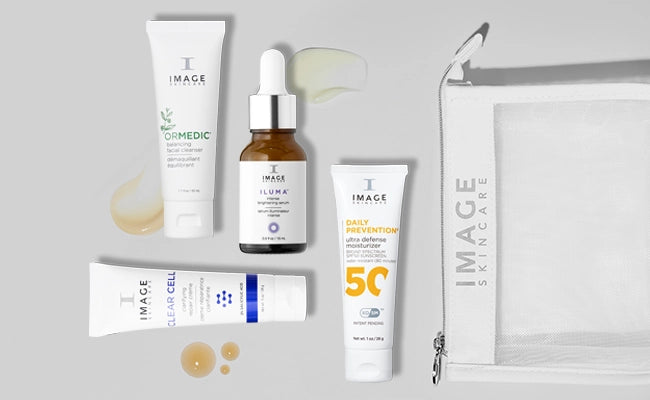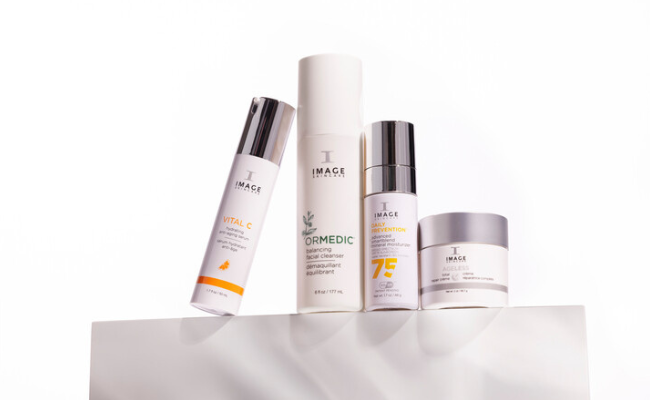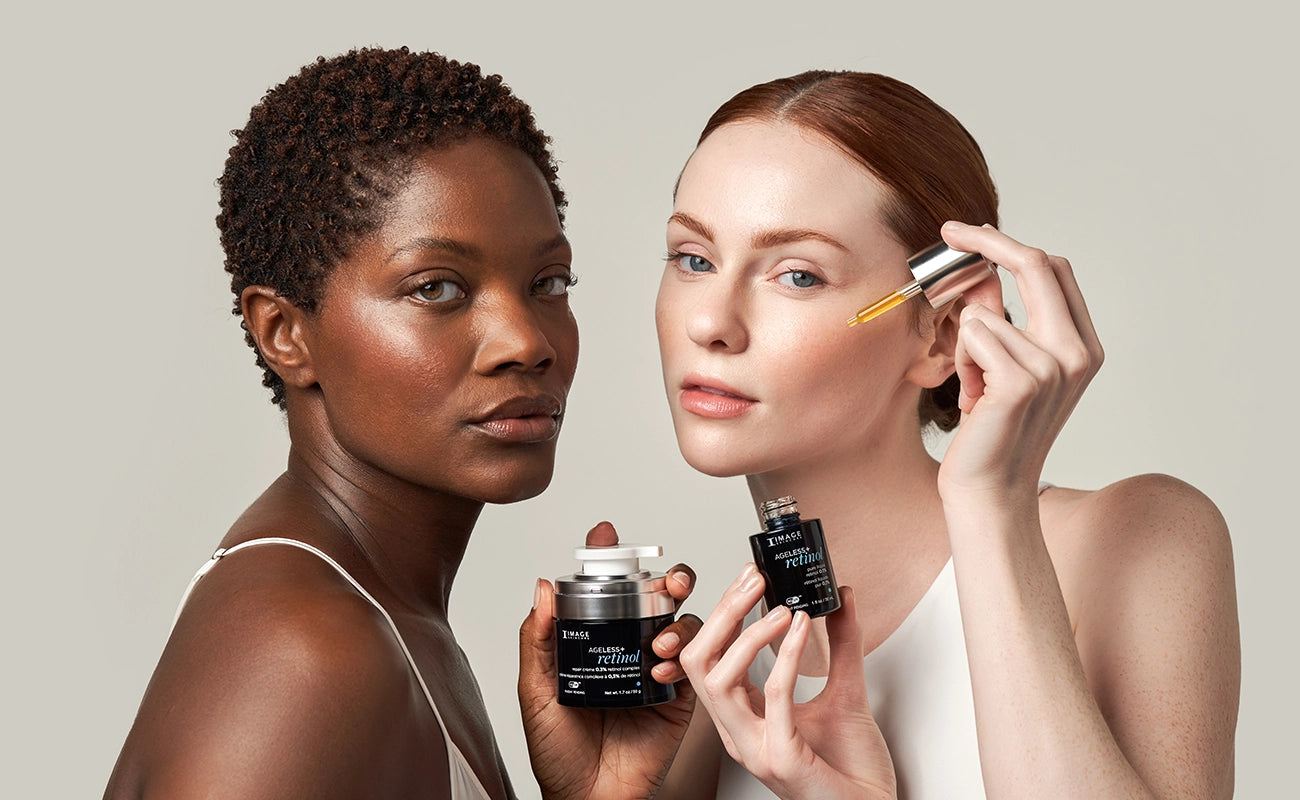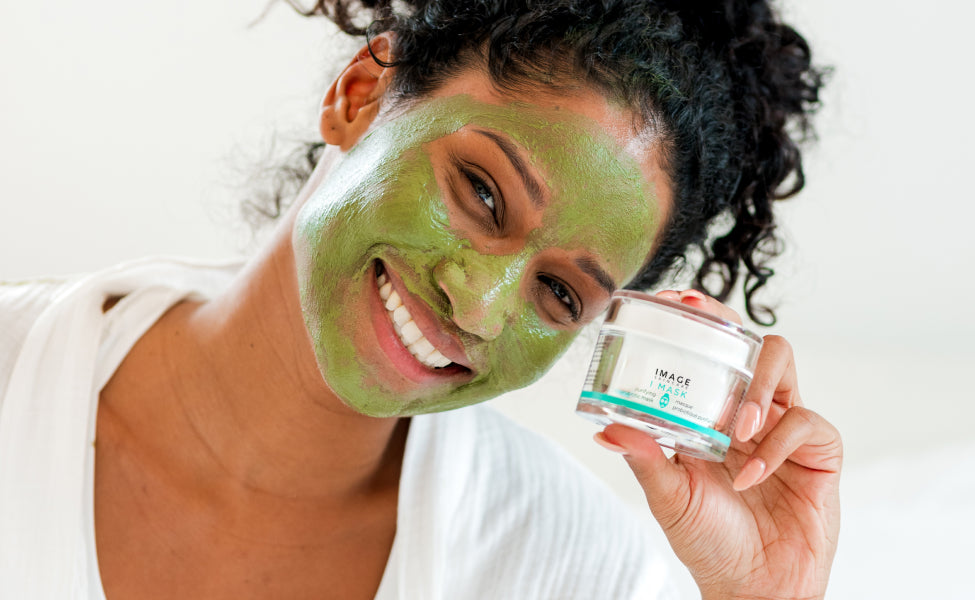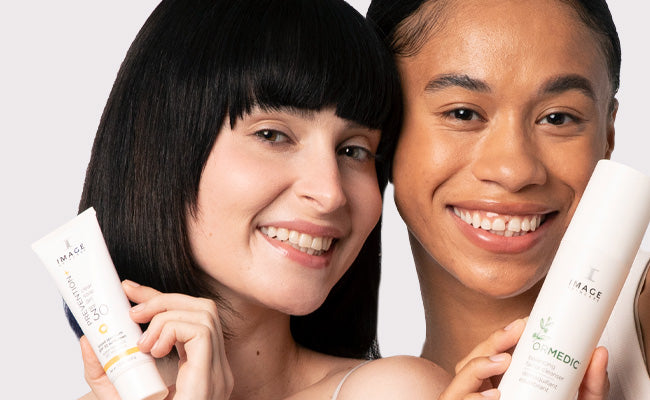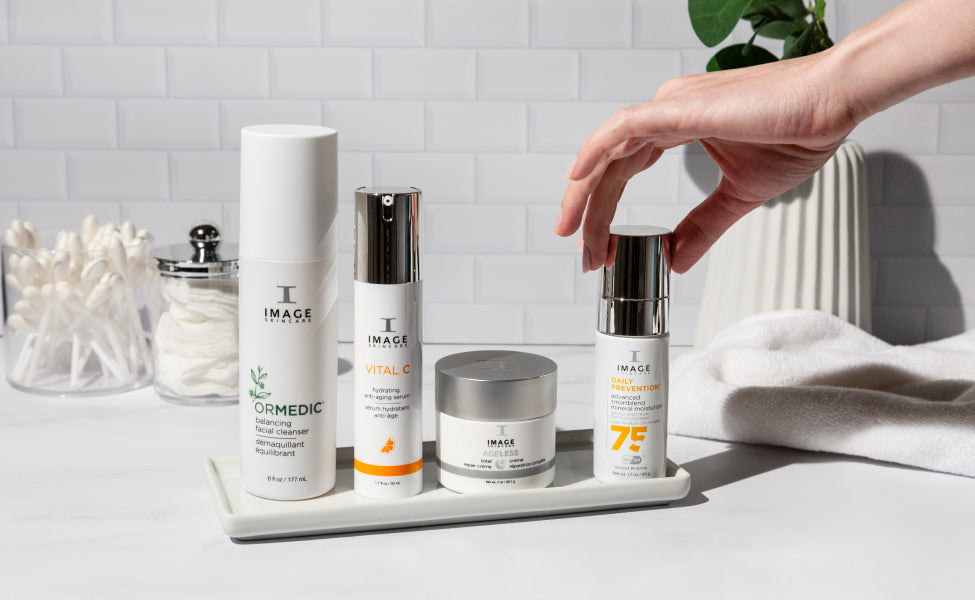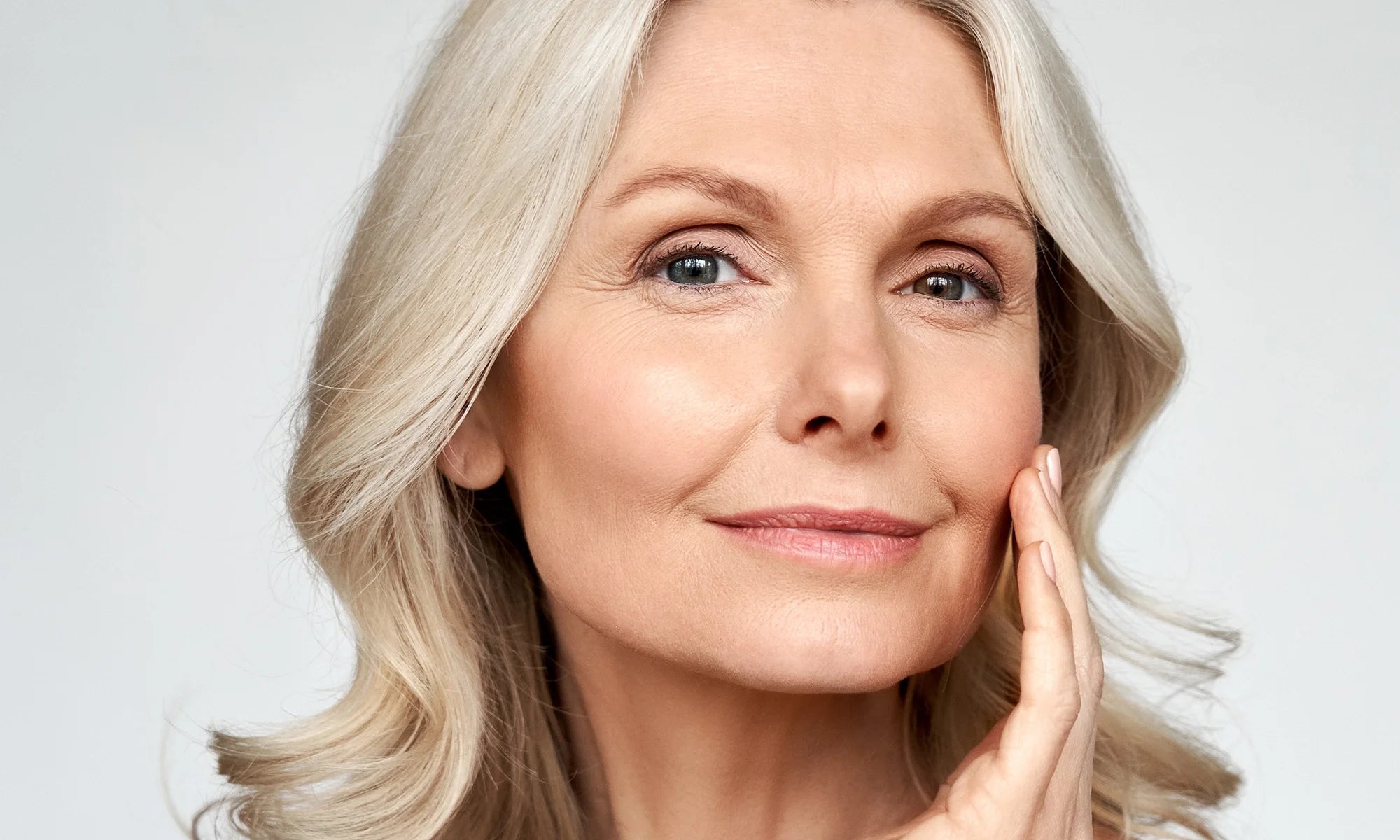
Does Skincare Expire? How to Know When to Toss Your Products
If you’ve ever rediscovered a long-lost serum in the back of your cabinet and thought, “Is this still good?” You’re not alone. Whether your skincare stash fits inside a single pouch or rivals a full-fledged apothecary, at some point, every beauty lover wonders: Does skincare expire?
The answer is more nuanced than you might think. Just because a product still looks, smells, or feels the same doesn’t mean it’s performing the way it should, or that it’s still safe to use. Unlike food, skincare rarely gives off obvious warning signs when it turns. And the consequences can range from lackluster results to skin irritation or even breakouts.
Ahead, we’ll break down what really happens when skincare goes bad, how to tell if your favorite formula’s past its prime, and what you can do to extend the shelf life of the products you love.
Do Skincare Products Expire?
In short, yes—but it’s a bit more complicated than that. All skincare products have a lifespan, even the cleanest, most high-end formulas. Over time, the ingredients inside can break down or become contaminated, especially if exposed to light, air, heat, or bacteria.
Unlike food, expired skincare doesn’t always smell sour or make you sick—but that doesn’t mean you should keep slathering it on. Some formulas degrade quietly, losing potency long before they show signs of spoilage. Others can become irritating or harbor bacteria you don’t want anywhere near your face.
It’s not always obvious, either. Some products, such as over-the-counter options like sunscreens or acne treatments, often come with a printed expiration date. Still, many rely on subtle clues, such as changes in smell, color, or performance, to let you know it’s time to toss them.
So while that luxe face oil may look fine sitting on your shelf, if it’s been open for more than a year, you may not be getting the results you paid for. Understanding why skincare products expire is the first step in knowing what’s still safe to use—and what belongs in the bin.

Why Skincare Quality Degrades Over Time
So, why do skincare products expire? It's not just about the passage of time. Here are some of the main reasons your go-to skin saviors may lose potency or become less safe:
Chemical Instability
Actives like retinoids, AHAs, peptides, and vitamin C are notoriously unstable. They react easily to air, light, and heat, which accelerates degradation. Once it starts to break down, not only does it lose effectiveness, but it can also trigger irritation.
Oxidation
Oxidation occurs when ingredients interact with oxygen and change their chemical makeup. A classic sign? Your vitamin C serum is turning amber or brown. A subtle shift may not be a deal breaker, but a significant color change is a red flag.
Bacterial Contamination
Products in jars or anything you apply with your fingers are especially vulnerable. Over time, bacteria introduced through repeated contact can multiply—even if you don’t see it happening. Natural or preservative-free products are particularly prone to this issue.
What Really Happens If You Use Expired Skincare?
Is it okay to use expired skincare? Technically, sometimes—but that doesn't mean it's a good idea. Sure, your skin may not erupt in hives after one swipe of an old lip balm. However, expired skincare isn't just less effective; it can actively work against your skin's health.
You Lose Science-Backed Benefits
Many ingredients in skincare (antioxidants, peptides, enzymes) are clinically proven to support skin health, but only in their active form. Once these ingredients degrade, they may become inert. For example, vitamin C (L-ascorbic acid) can oxidize within weeks if improperly stored, and studies show its antioxidant potency drops significantly after exposure to light and air.
Not only are you applying a “weaker” product, but it no longer delivers results. At best, it’s a waste of time and money. At worst, it sends you into a skincare plateau, where nothing seems to work anymore.
Potential Skin Irritants
Chemical instability isn’t just about losing potency; it can also alter how your skin reacts. Retinoids, for instance, are highly sensitive to oxidation and may break down into compounds that trigger inflammation. You might notice unexpected burning, redness, or post-use dryness from a product that once felt gentle.
Risk of Bacterial Exposure
A clean-looking cream doesn’t mean it’s microbiologically safe. If a product is past its recommended usage window (especially one in a jar or without airtight packaging), there’s a high chance of microbial contamination—even if you can't see or smell it.
One study of various in-use cosmetic items (lipsticks, mascaras, brushes) reported that up to 90% of products showed bacterial contamination, including Staphylococcus aureus, as well as fungi like Candida, among the most common contaminants. These microorganisms can cause breakouts, rashes, or more serious infections, particularly around the eyes.
A Compromised Skin Barrier
Think of your skin as a finely tuned ecosystem. When you use expired products, especially inconsistently potent ones, you disrupt the skin’s natural rhythm. The barrier becomes confused: one day it’s nourished, the next day it’s inflamed, and the cycle continues.
Over time, this can weaken your skin's resilience and leave you more susceptible to sensitivity, dehydration, or even long-term inflammation, such as perioral dermatitis.
How to Tell If Your Skincare Is Expired
Wondering how to tell if a product is expired? You don’t need a microscope or a chemistry degree. Just pay attention to these telltale signs:
Smell: A formula that smells sour, metallic, rancid, or just “off” is a major indicator of spoilage.
Texture: Clumping, separation, or a grainy consistency indicates that the emulsion may have broken down, a common fate for moisturizers and sunscreens.
Color Changes: Some change over time is expected (especially in products with vitamin C or retinol), but if the hue is dramatically different from when you first opened it, it’s time to toss.
Skin Reaction: If a product that once calmed your skin now causes stinging, redness, or bumps, the formula may have expired or oxidized into something less gentle..
Labels and Symbols: Not every skincare product includes a printed expiration date. Over-the-counter (OTC) items, such as sunscreens and acne treatments, are required to have specific labeling, but many other products are labeled differently.
- IMAGE Skincare Tip: Most of our formulas don’t list a fixed expiration date unless they’re OTC. Instead, look for the Period After Opening (PAO) symbol—a small open jar icon with a number like “12M” or “6M,” which indicates how many months the product remains safe and effective after it’s been opened.
Purchase Date: How long before skincare goes bad? It depends on the product type, packaging, formulation, and storage conditions. But if you’re past the one-year mark, it’s worth reassessing what’s still worth using, especially if you’ve already opened the product.
Here’s a general rule of thumb for open products:
- Cleansers: 6–12 months. These tend to last a bit longer due to their rinse-off nature, but watch for changes in scent or texture.
- Moisturizers: 6–12 months. Moisturizers can absolutely expire, especially when packaged in jars, which allow air and bacteria to enter with every dip. Over time, exposure to light and fluctuating temperatures can also break down key ingredients, such as antioxidants, peptides, or ceramides, reducing their effectiveness.
-
Serums: 6–9 months. These formulas are often more active and therefore more prone to oxidation or breakdown. Vitamin C serums, in particular, can lose potency quickly.
Eye creams: 6–12 months. Because they’re used near the eyes, it’s best to err on the side of caution. - Sunscreens: Always use by the printed expiration date. SPF stability is critical for efficacy and safety.
- Unopened products: Do skincare products expire if not opened? Yes, but they generally last longer—often two to three years if stored properly (in a cool, dark, dry place). Just remember: once opened, that shelf life clock starts ticking.

Our Pro Tips For Preserving Your Skincare
You’ve invested in high-quality skincare—don’t let it go to waste. Here’s how to keep your products fresher, longer:
Keep It Cool
Store products in a cool, dry place. A bathroom cabinet away from direct light is ideal. For certain actives, such as vitamin C or retinol, consider using a skincare fridge to slow oxidation.
Avoid Heat and Humidity
Heat can break down active ingredients, and humidity invites bacteria. So, try not to leave your products in the car or near a steamy shower.
Use Airless or Dark Packaging
Opaque, airless containers help minimize exposure to light and oxygen. If your favorite serum doesn’t come in one, store it in a drawer or cabinet.
Don’t Double-Dip
Use a clean spatula instead of your fingers to scoop from jars. Not only does this maintain sanitary conditions, but it also helps preserve the formula by minimizing contact with bacteria, mold, and excess moisture. If possible, opt for pump packaging to further reduce exposure and extend the product’s shelf life.
Tighten the Cap
Ensure that products are sealed tightly after each use. This simple habit can significantly extend the product's shelf life.
Label With Dates
Use a marker or label maker to note the date you opened a product. It's a simple trick that takes the guesswork out of tracking freshness.
Be Ingredient-Savvy
Not all skincare ingredients age at the same pace, and how you store them can make a big difference in their shelf life and performance.
- Retinol: Sensitive to light and air, retinol can lose its potency quickly. Does retinol expire? Absolutely—and often faster than expected. To slow degradation and reduce the risk of irritation, store it in a cool, dark place.
- Vitamin C: This brightening antioxidant is notoriously unstable. It oxidizes rapidly when exposed to heat or light, often turning amber or brown as it breaks down. Storing it in the fridge can help extend its life.
- Moisturizers: Does moisturizer expire? Yes, especially if it’s packaged in a jar, which introduces bacteria and air with every use. A spatula can help preserve it longer.
- Cleansers: These are generally more stable, but does face wash expire? Eventually, yes. Look for shifts in scent, color, or texture, all signs that it may be time to part ways.
Is Your Skincare Past Its Prime? Expired products can be ineffective and harmful to your skin. Guarantee fresh, powerful results and never run out again with IMAGE Skincare's Subscribe & Save feature.
Refresh Your Routine & Save!

